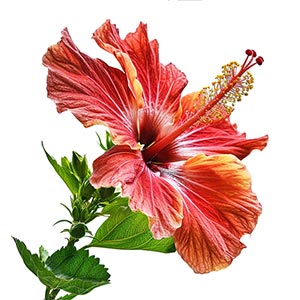Hibiscus in perfumery is noted for its subtle and slightly exotic floral scent. Historically, hibiscus has been used in various cultures for its beauty and fragrance. The flower's natural scent is delicate, often described as a soft, floral aroma with a hint of a tart, fruity edge. It is not as heady or intense as other floral scents, making it a unique addition to fragrance compositions. The extraction of hibiscus scent is typically done through a process of enfleurage or solvent extraction, capturing the essence of the flower. While natural hibiscus extracts are used in fragrances, there are also synthetic versions designed to replicate or accentuate the flower's natural aroma. Hibiscus is commonly utilized in floral and fruity fragrance families, adding a fresh, tropical touch to the compositions.
Natural or Synthetic?
Hibiscus does not have a natural essential oil used in perfumery. The fragrance of Hibiscus is synthetically created to replicate its characteristic floral and slightly tangy scent. Synthetic formulations are designed to capture the essence of hibiscus flowers, using a combination of floral and fruity aroma chemicals.
Fragrance Families Hibiscus Most Commonly Found In
Show fragrances that contain Hibiscus as a note



